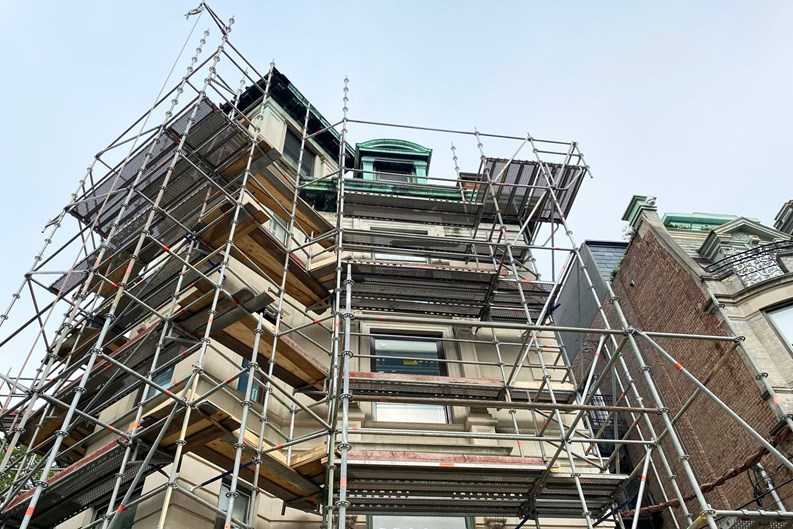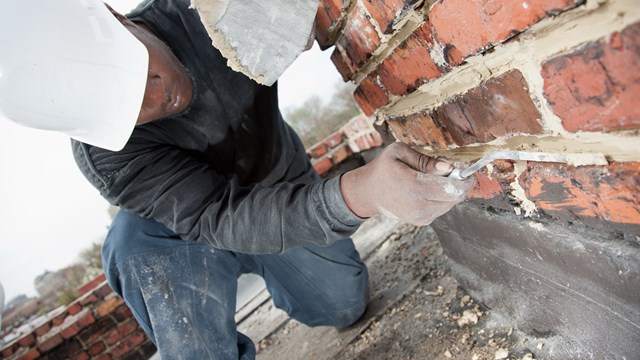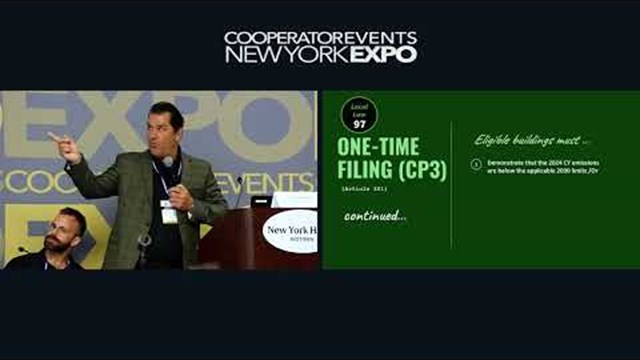Access agreements—the legal documents you must secure before you can encroach upon your neighbors’ property to carry out needed work on your own—have long been a thorn in the side of co-ops and condos. This is particularly true in Manhattan, where properties are often built right up to the lot line, leaving no room in between buildings for workers and their equipment to maneuver. This means that in order to carry out exterior inspection, maintenance, or repair work, they must cross over into adjacent properties to get the job done.
Obviously, work crews and contractors can’t just walk right into a neighboring building and roam freely without permission and a mutually agreed-upon set of guidelines spelling out working hours, licence and liability requirements, off-limits areas, and expiration date, among other items.
That’s where access agreements come in. Negotiating these agreements has become something of a cottage industry over the past few years. What at one time might have been a simple handshake understanding between neighbors now requires an array of attorneys, architects, contractors, and managing agents representing all parties involved. The process isn’t formalized, so inconsistencies and delays are common. Some buildings charge an upfront fee in exchange for granting access to their property, while others may hedge, which can cause further delay in getting necessary work done.
Enter New York State Senate Bill S-3799, currently awaiting signature on Governor Hochul’s desk. The bill formalizes the process for obtaining an access agreement, and its passage into law is widely welcomed.
According to Giulia Alimonti, vice president of building envelope for Entuitive, an international engineering and design firm with offices in New York City, “Access between neighbors had become increasingly more difficult and time consuming, with lawyers and contractors, etc. getting involved. It was a problem. Sometimes it involved more than two buildings. The new law provides clarity. It’s not punitive; it helps everyone. It basically says you can’t deny access. Neighbors can request insurance and pre-conditions, but they can’t deny access for work that needs to be done.”
The Underlying Problem
“Nothing makes neighbors more unneighborly than construction—especially in New York City,” says Mark Hakim, a partner with the law firm of Schwartz Sladkus Reich Greenberg Atlas. “Protections for and access to adjacent buildings are commonplace here, and are often legally required as part of the work. Access agreements are intended to provide protection to the accessed property, and to further help prevent disputes, minimize delays, and so forth. In an effort to help alleviate the issues, Senate Bill S-3799 was introduced to provide a licensee expanded access rights to adjoining properties to make improvements or repairs for certain circumstances, as well as a framework for their access needs.”
The new law will permit access-dependent activities such as pre-construction surveys, the installation, maintenance, and repair of scaffolding and protective coverings, along with other items such as vibration monitoring equipment, and temporary or permanent relocation of the adjacent property’s rooftop items.
Other key elements of the bill require the licensee (the party requiring access), to reasonably compensate the neighbor or adjoining owner for the “loss of use and enjoyment of the adjoining premises including diminution in value” and for fees in connection with the review and or preparation of the agreement and review of relevant documentation, such as plans, blueprints, etc. Though these fees are not defined, it removes the uncertainty of whether compensation is required, and leads the parties to negotiate the terms openly. Now also codified the requirement that the party seeking access and/or their contractor provide general liability insurance. “It’s good to have this clarity on what neighbors can and cannot do,” says Alimonti.
That said, “The new bill does not appear to include any specific consequences for failure to comply,” notes Hakim. “Proceedings may still be needed in some cases to move forward, but now that can happen on specific and easily identifiable grounds based on the bill.”
“I’m not sure the new law will be the proverbial end-all” to the challenge of negotiating access for needed work,” Hakim continues, “and it may lead to more questions than answers, since we still have to negotiate the agreement and fee structure, as well as navigate the muddied and difficult insurance world. We’ll also still need all parties to negotiate in good faith and be reasonable—but at the very least, once it’s enacted we will have a more formal roadmap.”










Leave a Comment